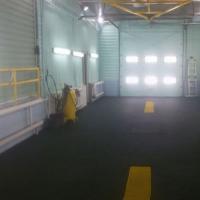What is professional growth. Career. Career and features of its formation
Personal and career growth are two seemingly different concepts, which, nevertheless, psychologists always consider in an inseparable combination. Often people have the oppressive feeling that their professional activities are stuck in place, and neither the position nor the position no longer satisfies their ambitions. Realization of this fact is a sign that it is time for you to think about your career growth. They talk a lot about him, but more often on a superficial level, not fully delving into the complex essence of this concept.
Send an application for a consultation with a psychologist
Complete confidentiality
Professionalism

Individual analysis of non-standard situations

Choosing a location for a consultation
Types and goals of career growth
The standard understanding of this phenomenon boils down to a career ladder metaphor: start from the bottom and reach leadership positions. But this is only one side of a multifaceted concept. Modern psychologists distinguish three types of career growth, each of which has its own goals:
Positional growth
 Its essence is just the most accurately reflects the very metaphor of the career ladder, when a person moves up the job hierarchy in order to receive a higher salary and increase his social importance. Changing positions can take place measuredly and in stages, as well as, on the contrary, abruptly or rapidly.
Its essence is just the most accurately reflects the very metaphor of the career ladder, when a person moves up the job hierarchy in order to receive a higher salary and increase his social importance. Changing positions can take place measuredly and in stages, as well as, on the contrary, abruptly or rapidly.
Professional career growth
It involves improving (deepening and expanding) existing skills and knowledge, gaining new experience that is valuable from a professional point of view. As a rule, such a career advancement is accompanied by an increase in salary, but this is not a priority and motivating goal.
Social career growth
 The desire to occupy positions that will allow, among other things, to belong to a certain social group... For such people, career prospects are inextricably linked with socialization and finding their place in public life.
The desire to occupy positions that will allow, among other things, to belong to a certain social group... For such people, career prospects are inextricably linked with socialization and finding their place in public life.
Thus, one can understand why to different people career growth is needed. For someone, the main motivating factor is money, for someone, improving oneself as a specialist in a particular field, while someone considers a successful career as an opportunity to gain significant social status and find their place in life.
New articles on the site
Personal qualities necessary for career growth
People planning to build a successful career should not only demonstrate uncompromising professionalism in their field, but also differ in a number of important personality traits.

- Have universal communicative inclinations, i.e. be able to establish effective interpersonal communication with colleagues, regardless of their place in the job hierarchy.
- The ability to influence other people, activity and dedication are also important personality traits for those who are building a career.
- Reaching the very top is impossible without high self-esteem (realistically compared to your capabilities and abilities), the proper level of self-control and the ability to solve the most non-standard problems with a cool head.
If people with systemic and analytical thinking are more inclined towards official growth (vertical), then professional career growth (horizontal) is more inherent in creative individuals. People who achieve success in this direction are distinguished by such personal traits as diplomacy, non-conflict, constant openness to new knowledge, lack of arrogance.
Online consultation: ask a question to a psychologist

Career planning should always include working with personality traits. Building a competent strategy begins with understanding the strengths and weaknesses your character. To formulate the tasks of career growth that you face, clearly think over a strategy and work out your personal qualities in accordance with your plans, you will certainly satisfy your ambitions and achieve success.
Do we really need career growth? At first glance, this is a rather strange question, especially if it is asked in a team of young and ambitious people. And the answer seems to be obvious. Who doesn't want to be successful in their career? It is absolutely natural that everyone at least once thought about their career growth. I would say that there is practically no person who would not plan to build a successful career at the beginning of his career. The second factor after the level of salary, which we evaluate when applying for a job, is precisely the possibility of career growth. And it is right! It is a healthy pursuit for ambitious, forward-looking, smart and capable people. But, nevertheless, this question still arose for me. I want to note right away that this is not some kind of analysis. specific situation or a clear description of processes, this is one of the points of view based on average statistical situations, which should not be regarded as the only truth and indisputable rule. So, let's figure it out, do we really need a career or do we want something else?
Career
Before answering that question, let's figure out what this growth is and why we strive for it.
When we talk about a career, we conventionally mean not only an increase in position and responsibility, but also an increase in wages, social status, obtaining privileges, etc.
The definitions of career and career development are as follows:
- Career - it is success, career advancement. In other words, it is the result of a certain behavior and position of a person in labor activity associated with his professional growth. Each person builds a career himself, and it depends on his desires, goals and attitudes.
- Career- this is the expansion of the authority and responsibility of the employee, the movement upward, the transition from one level of management to another.
Career growth is a natural process for developing professionals. This is the ideal. Does it always happen this way?
So, move up! A young specialist comes to his first job (if we are talking about IT) and starts building his career with a junior specialist. He works, develops and slowly climbs up, becomes a specialist at the middle level, then a senior, and maybe even a team lead ... Then he realizes that this work does not suit him anymore, because there is nowhere to climb, everything is already busy and it is not known when will be released (especially for small and medium-sized IT companies). He starts looking for other possibilities. He sees another opportunity, as a rule, in changing the company.
Now it is easier to find a new company, you already have work experience, knowledge base and an arsenal of skills. Very often, however, it happens that new company I'm not ready to take on a higher position, because, in their opinion, the luggage is too light, and the arsenal is not so complete, so a lower position is offered (but there is a bonus in the salary). It doesn't matter !!! After all, the young specialist starts his upward movement again. Very often, this company also does not end there, because there is also a ceiling there ...
Some kind of vicious circle. In other words, everything that attracts us, precisely in career growth, is an increase in wages and the acquisition of regalia or a certain position or status, well, or, in extreme cases, the authority to rule (this also takes place). Career growth is simply noticeable to those around you with the naked eye, that's all! That is, we are exchanging and wasting time just so that others can notice that we are moving up. Did we dream about this at the dawn of our labor activity? Satisfy your ambitions or assert itself in the eyes of others?
A fair remark immediately arises that with career growth comes a professional one, which means that we are developing. After all, it is precisely the lack of professional and personal development that burdens most of all, and it is precisely because of the lack of such development that a person feels frustrated, dissatisfied with his work, unnecessary in this environment. Not a lack of career growth, but a lack of professional development makes us look for new job... Therefore, this statement is not entirely true. Career growth does not always correspond to professional growth, and often career growth also does not bring satisfaction (this understanding comes with time, when the euphoria from the new atmosphere passes), because it is not identical concepts(career and professional growth), these are parallel processes and can move in opposite directions. After all, really, who of us has never encountered a leader with a complete mediocrity, tyrant and completely inappropriate knowledge and skills? In what direction did his professional growth go?
To demonstrate this more clearly, let's figure out what professional growth is and compare it with a career one.
Professional growth
Professional growth is the growth of professional knowledge, abilities and skills, recognition by the professional community of the results of human labor, authority in a specific form professional activity.
Professional growth is not as noticeable as career growth, it can be seen in the better and faster fulfillment of the tasks assigned to the specialist, in the growth of his indicators, in the increase in demand among clients, etc. Professional growth, as a rule, is not accompanied by an increase in status, salary and so on. Although for managers, specialists who develop professionally are more in demand, and in the end they get what careerists strive for - a good salary, a position, and most importantly, acquire professional authority.
Precisely because most people confuse or confuse the concepts of career and professional growth, they start the wrong way. Some are so fixated on career growth without understanding the essence of this process that they completely inadequately assess their successes and aspirations in the professional plane.
Here again a natural remark arises about the fact that there is also a limit to professional growth? I cannot agree with this. There is no limit to perfection. Professional development can be carried out in several directions, and you yourself determine this direction. You can develop deeper into the profession, becoming a unique, inimitable expert in your field, a demanded professional, or expand your professional competence and master the profession as a whole and at the same time gain skills and knowledge to solve the most difficult tasks, awareness of all processes, the ability to qualitatively analyze their own and others' actions / operations. Career growth requires not so much an increase in the level of existing competence, as the acquisition of new competencies. And this is not a process for the sake of a process like professionals, but a process for the sake of necessity.
Where to grow?
As you can see, these concepts are completely different. Not better or worse, but different. And only we ourselves can choose what we need: salary, regalia, position, recognition, knowledge, authority, etc. The most important thing is not to confuse these concepts, then the understanding of our needs will acquire clearer outlines.
With the right approach, professional growth is really accompanied by career growth, and then everyone is satisfied: a specialist who has received a well-deserved promotion, and an employer who has received a valuable employee. And I want to emphasize once again not career growth is accompanied by professional, but professional - career (in most cases). It is important to be aware of this.
Professionals often complain that professional growth opportunities are not available to them at their current place of work. However, if you look "deeper", it may turn out that this is far from the case. After all, each specialist determines the criteria of his professional growth independently.
So, for some, professional growth is the achievement of goals with minimal expenditure of resources, for others - recognition in professional circles, for the third, the increase in wages is most important, for the fourth it is important to have leverage over subordinates. Therefore, it is important to establish certain criteria for professional growth specifically for yourself, in order to understand how actively professional development is taking place and whether it is happening at all.
Here are some simple questions:
- Are you satisfied with what you are doing, have you chosen the right profession?
- Do you find the activities you are doing useful for yourself and others?
- Do you feel that within the chosen activity there is still room for personal and professional growth for you?
- Do you want to improve and hone your craft?
If you answered yes to everything, then you are doing what you love, and there are no obstacles to growth and improvement, never, anywhere and under any circumstances.
And in order not to be in the place of that specialist who wastes time on the meaningless dance "2 steps forward and 1 step back", decide what is important to you. I am sure that after that it will become clear how to move on, develop and grow professionally, in order to inevitably get a higher salary, a good position and respect from colleagues (maybe even at a new place of work, but in a planned and natural way) or take risks right now. At the same time, the realization will come whether your professional development has stopped or it has not yet gained the necessary momentum, whether there is, where to grow and what needs to be changed.
5 chose
At first glance, they, these concepts of working growth, are really similar - both mean development, raising one's own level, conquering new heights. And yet these are different things, although, of course, they are also interrelated. Career growth can be the result of professional, and professional - come for a company with a career. Let's take a closer look: the wider mastery of one's profession differs from building a career. And how to make one serve for the good of the other.
 Master of his craft
Master of his craft
The fine and proud title of a professional these days is handed out and awarded thoughtlessly and sometimes shamelessly. For some enough clear inscription on the business card and please - we are a pro! However, a true professional is not necessarily someone who has gone from being an assistant to a leading manager. (history knows many examples of increases, both logical and not subject to rational explanation). Professional specialist- This, first of all, the one who not only mastered, but incessantly continues to learn the chosen type of activity. He not only maintains the achieved level, but also strives to improve his qualifications. Such an employee is competent in all tasks and processes that are necessary for the implementation of his activities, is able to effectively analyze the situation, coordinate colleagues involved in the project.
 How do you become a professional? Of course, they are studying the case. And they study it from the most basic stages. Certain professions require, of course, the corresponding higher education... Others can begin to comprehend during an internship or practice: are there not enough good specialists who have been successfully working for many years not in the profession they received at the university?
How do you become a professional? Of course, they are studying the case. And they study it from the most basic stages. Certain professions require, of course, the corresponding higher education... Others can begin to comprehend during an internship or practice: are there not enough good specialists who have been successfully working for many years not in the profession they received at the university?
But note: the learning process for a real professional never stops! He is always in search of new ideas, new solutions, explores the directions and tools that emerge over time thanks to the experience of colleagues in the shop. His job is his calling.
You will say that dislike for your work does not mean at all that a person is not well versed in it? Of course! But in my opinion, a true professional should enjoy what he is doing. And if a person feels tired (the one from which neither vacation nor long New Year's holidays can be saved), he is tired of everything and it seems that he has rested his head against an invisible ceiling, perhaps it is time for him to grow up a career.
One step higher
Career growth implies that the employee is promoted to a higher position. First he has the area of responsibility is growing, the functionality is supplemented with new powers, is growing wage ... Then he may have subordinates, whose work he manages. A team's performance is an indicator of how successful it is in performing its duties.
 Of course, along with an increase in status and a change in an entry in work book for a more prestigious d The professional horizons must also expand. However, its quality is different from the outlook of an ordinary employee. A competent leader does not always understand all the nuances and subtleties of his "junior" colleagues. However, it is he who must be able to create such conditions for his team, in which everyone will be able to use their abilities to the maximum... Roughly speaking, if you are the director of the housing office, you do not have to be able to repair the crane yourself. But you must know how to organize the work of the organization entrusted to you so that there is always a plumber on duty and that in the house where the accident happened, its consequences were eliminated as soon as possible and in the best possible way.
Of course, along with an increase in status and a change in an entry in work book for a more prestigious d The professional horizons must also expand. However, its quality is different from the outlook of an ordinary employee. A competent leader does not always understand all the nuances and subtleties of his "junior" colleagues. However, it is he who must be able to create such conditions for his team, in which everyone will be able to use their abilities to the maximum... Roughly speaking, if you are the director of the housing office, you do not have to be able to repair the crane yourself. But you must know how to organize the work of the organization entrusted to you so that there is always a plumber on duty and that in the house where the accident happened, its consequences were eliminated as soon as possible and in the best possible way.
 Right off the bat
Right off the bat
The ideal alignment is when career and professional growth constantly intersect and intertwine just as bouncy hair strands form a tight braid. So, when management notices that an employee is doing his job better than others, his knowledge exceeds the required minimum, clients recommend him to each other and partners of the organization, colleagues often turn to him for advice, and the ideas he offers most often meet all the needs of the business - it is logical not to wait until such a valuable staff finds use for their talents "on the side", but to transfer it to a higher position, motivating prospects and increase in earnings.
You can build a career in a fairly short time if you put a lot of effort into it. If you correctly understand and use your capabilities, develop and make useful contacts, you can quickly become a respected professional and ensure career growth.
Why do you need to develop a career

Rapid career growth, a highly paid position, an executive chair - this is what most employees dream of. However, this can only be obtained with some effort. You will have to constantly learn, improve and develop skills in the chosen and related areas.
Define a professional growth goal - what drives you? Some want to become leaders, others are tired of sitting in the same place, and they yearn for development, for others, material goals are fundamental. Only after you have decided on the incentives that drive you, you can.

If you want to get leadership position, you have to learn to manage people. This is a whole art that needs to be constantly improved. A talented leader is not the one who tells his subordinates what to do, but the one who can quickly understand all the processes, competently build a system of work and distribute responsibilities. You also need to be able to motivate staff to achieve common goals.
Those who sit in one place and want to move forward should clearly understand their plan for professional growth. It is necessary to understand whether you want to continue your career and professional growth in the chosen field or want to do something new. We need to look for opportunities that can be - refresher courses, trainings, a second education. Study literature, communicate with colleagues, go to thematic exhibitions- all this will contribute to your professional development.
If your goal is high earnings, you need to think not only about money, but also about the quality of work. Show consistently high KPI, improve, carry out any project at a high professional level. Good employees do not go unnoticed; soon you will be entrusted with more complex and responsible tasks that will be better paid. With due diligence, the ability to correctly apply your skills and distribute work time your career growth will develop quickly enough.
Do I need education
Many people ask the question - is education necessary as a form of professional growth, will it help in further career development, or experience decides everything? Education is definitely needed, because you are adopting experience and knowledge that will be useful in. In addition, the employer looks not only at the skills on the resume, but also at the basic and additional education.
However, the choice of an educational program must be taken very carefully. If you want to go to a higher education institution, choose the best universities with the highest ratings, otherwise you risk losing a few years in vain. University is not only knowledge, but also new useful acquaintances. The higher the rating of the university, the more high-level professionals there, not only theorists, but also practitioners.
Find out about continuing education courses and continuing professional education opportunities in your city. It might be worth learning a new one computer program, learn a foreign language or learn how to run large projects.
Communication with professionals from your field should also be viewed as an opportunity for professional growth. You can always make useful contacts, make new acquaintances, which can contribute to the achievement of professional goals.
The professional growth system must necessarily include education. Get information from different sources - communication, professional literature, business meetings. It is worth building your educational process clearly in accordance with your career goals.
What personal qualities do you need

Career growth requires the development of such personal qualities, how:
- purposefulness;
- responsibility;
- hard work.
“They are greeted by their clothes” - this principle also works in the professional world. Learn to keep track of your appearance, dress appropriately for the occasion, always come in clean and tidy clothes. Things do not have to be expensive at all - you can pick up things of the middle price category, the main thing is that they look presentable.
Self-development

- one of the engines of professional growth and development. Now there are a lot of opportunities for this, from the Internet to international educational programs. You just need to choose Career development directly depends on self-education, so you need to constantly improve your skills.
Focus on one area while being interested in related areas. For example, if you are a marketing specialist, knowledge in the field of management, sociology, and personnel management will be useful to you.
Do not withdraw into yourself - communicate with colleagues. Learn from the experience of professionals, read interviews with in your field, attend meetings with them. Many people share their knowledge absolutely free in their blogs, video blogs and books, which can be found freely available on the Internet.
Business or career growth
Business as a form of professional growth is the choice of those who are ready to take responsibility for all processes and understand, are ready to take risks and understand that for successful development it will take a long time. Starting your own business in the chosen field in order to strengthen the position of your company in the market.
Build a professional growth plan not only for yourself, but also for. Think about what goals you want to achieve, how much you plan to earn, how you are going to develop. Find like-minded people, go to professional meetings.
Business is a great prospect for professional growth if you are ready to constantly improve. You need to be prepared for the fact that no one will tell you what to do, but you completely take responsibility for all actions. Follow new trends, do not lose sight of competitors, contact as many professionals in your field as possible.
Don't be afraid to take risks - you have to do it all the time. Any experience, even a negative one, is your impetus for development. In business, professional growth and risks are interrelated concepts, so the more you try something new and unknown, the more information you get. Of course, the risks must be justified - you need to understand what you can gain or, conversely, lose from taking this or that action.
An important question for many is at what age you can be in business. This is purely individual, because someone starts their own business as a student, and someone decides to work for themselves after many years of professional activity. Business success depends not so much on age as on the speed of your reaction to any market events, the ability to be in trend and readiness for continuous development.
Speaking about how professional growth and business are interconnected, we can cite as an example a couple of young entrepreneurs who decided to start their own business from school. They tried themselves in different types activities, but eventually settled on a holiday agency. Opening the company, they simultaneously received education in the field of management, studied new trends in their professional activities, made many new acquaintances. As a result, the small company has grown into a rather serious organization that more and more clients trust.
How fast can you grow professionally
For some, career growth lasts for many years, while for others it is rapid. This is because everyone uses their potential in different ways. Someone grabs at any opportunity, while others are satisfied with measured activities, where you just need to go with the flow. Career and professional growth is, first of all, How long you will achieve the desired position - depends only on you. Someone takes a leadership position after a year of work, and someone still does not achieve it, as they incorrectly assessed themselves.
Definition of career growth
It's no secret that modern system professional development of educational workers is developing very rapidly, improving, renewing itself. Almost everything is guided by the energy of the teacher himself, which, in turn, specifically depends on his own career aspirations, established professional goals and objectives, and personal needs.
Career growth can be defined in different ways, but in the very general view it means a path of official or professional advancement, deliberately chosen and implemented by the employee, which guarantees the professional and social self-affirmation of a person in accordance with the level of his qualifications. In psychological and pedagogical science, E. Shein, M. V. Aleksandrova, D. A. Ashirov, V. G. Polyakov, B. Z. Vulfov, S. D. Reznik and others were engaged in the problem of career growth. in the management of the organization. So, for example, in 1971, Dr. E. Shane of the Massachusetts Institute of Technology, proposed to consider a career in an organization in the form of a three-dimensional cone. E. Shane emphasizes that career planning is a slow process of developing professional self-concept and self-determination in determining personal capabilities, talents, motives, needs, relationships and values. A successful career depends not only on the motivations and motivations of a particular personality, but also on the possibilities.
In domestic pedagogy, until recently, the concept of "career" was actually not used, and basically the word "career" had a negative connotation. IN last years this negative connotation began to disappear. At the moment, a person "making a career" is seen rather as having an orientation towards realizing personal and professional potential.
For a long time, only a career that involved moving up was considered successful. But for one person, success is progress in accordance with the ascending levels of the hierarchy, for another - the likelihood of creativity and skill within the framework of the position held. Therefore, now the word "career" in general, and in the education system in particular, is understood in two senses: a) a vertical career, which presupposes promotion up the career ladder; b) a horizontal career reflecting continuation professional skills a teacher in the absence of a change in his place in the hierarchy of official positions. A number of researchers believe that horizontal and vertical careers are not only different methods of life in the profession, but also different methods of life in general.
Professional growth horizontally is accompanied by a sense of professional independence, self-organization and inexhaustibility of the position held. The mastery of competencies atypical for teachers can serve as an example of a horizontal career. Educator of English language creates its own Internet site, where it speaks with its listeners, thereby increasing the learning property of the provided advanced training course. Another teacher is mastering Newest technologies and achieves to become the creator of a multimedia electronic textbook.
The horizontal career of a teacher can develop under specific organizational and pedagogical criteria, which include:
- the point of view of the leader;
- the presence of external characteristics of the success of moving in the specialty (merits, results of research activities, etc.);
- the presence of an adequate assessment system, its correlation with the values of a particular employee;
- helping and stimulating creativity;
- the formation of reflective and creative properties.
Specifically now, when the State Program for the Development of Education for 2011-2020 is being successfully implemented, great abilities are revealed for those teachers who do not want to leave their favorite work, who sincerely love to teach and understand how to do it masterfully. The implementation of the provided program creates such conditions for career opportunities as stimulating teachers who actively implement modern educational technologies; municipal assistance for young and professional teachers; the approval of the best teachers. And this, in turn, provokes teachers to study newest ways methodical work, scientific study, awareness of the importance of their practical activities.
Recently, the number of teachers who have decided to engage in research work has significantly increased, which also contributes to their career advancement. Naturally, while this feature is still relatively small in the system of advanced training, however, the rise in the number of teachers eager to build their own competence through research activity has increased significantly.
These are just some of the career opportunities for a modern teacher. Obviously, there are other ways of establishing and developing a career in the education system, since a career should be viewed not only as climbing the administrative ladder, but as the likelihood of becoming a successful specialist in own activities.
Professional growth
Considering the career growth of a teacher as a dynamic process, it should be noted that it is directly related to professional growth as a personal readiness for self-development and self-improvement within the framework of existing professional activities. Professional growth is understood as the development, integration and implementation in pedagogical work of professionally important personal properties and capabilities, professional knowledge and skills, functional high-quality transformation of a person's own inner world, leading to a consciously new way of life.
The main role in professional growth belongs to the teacher personally, his expectations, ideas about his labor future.
Nowadays, the teaching career requires special attention. The progressive community is not indifferent to who will work with teachers: an impassive performer or striving for the greatest identification of his own creativity professional. This dictates the need for research and implementation in the educational sphere of concepts, programs and models of career design for the teaching staff of the IPC, aimed at helping, supporting, encouraging and using all the real abilities of his career growth.
The following stages of the teacher's professional growth can be distinguished: pedagogical skill, skill, creativity, innovation.
Pedagogical skill is the base of the teacher's skill, in the absence of which it is impossible to act in school. It is based on the necessary theoretical and practical training of the teacher, which is provided in pedagogical educational institutions and continues to polish and improve at school.
The next step in the professional development of a teacher is pedagogical skills. Pedagogical skill as a high-quality characteristic of the teaching and educational activity of a teacher is the educational and educational skill brought to the highest degree of perfection by him. Naturally, in order to develop pedagogical skills, the teacher must possess the necessary natural data, a good voice, hearing, external charm, etc. But, despite the fundamental meaning of these natural, personal data, contributing to successful pedagogical activity, the acquired properties play a decisive role.
Pedagogical creativity has significant specificity. Pedagogical creativity includes specific components of novelty, however, most often this novelty is associated not so much with the advancement of the newest ideas and foundations of study and teaching, but with the modification of the methods of teaching and educational work, their specific modernization.
Pedagogical innovation is considered the highest level of a teacher's professional activity. Pedagogical innovation includes the introduction and implementation of the latest, modern ideas, foundations and methods in the process of learning and teaching and significantly changes and increases their quality.
 What you need to open a hookah lounge, and how to do it correctly
What you need to open a hookah lounge, and how to do it correctly How to start a business and choose donut equipment
How to start a business and choose donut equipment Opening a company in Montenegro Open a company in Montenegro
Opening a company in Montenegro Open a company in Montenegro The carpentry shop as a business
The carpentry shop as a business How to choose a business direction?
How to choose a business direction? Sample business plan of a dental office
Sample business plan of a dental office Five best business ideas that brought millions What business to open so as not to go bankrupt
Five best business ideas that brought millions What business to open so as not to go bankrupt